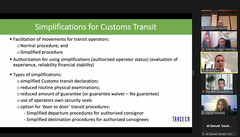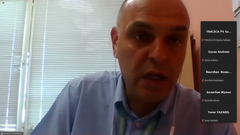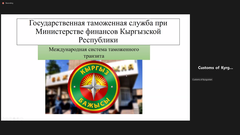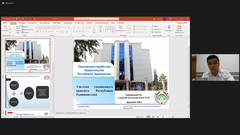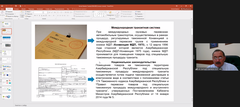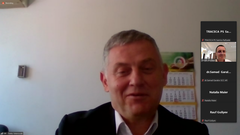On June 29, 2022, the first virtual workshop on customs issues along TRACECA routes was organized
The main objective of the workshop is to support the harmonization of customs procedures and formalities at border crossings and seaports on TRACECA routes, to facilitate and simplify the procedure for the goods’ movement.
The customs authorities of the TRACECA member-states were invited to participate in the workshop to exchange experience on the harmonization and simplification of customs transit procedures (with an emphasis on multimodal transport operations) and mechanisms for the systematic information exchange between customs authorities.
In addition, the discussions of the workshop were dedicated to multimodal transport, in particular, and the role of customs in facilitating transhipment and changing the mode of transport during transit operations, as a whole.
As you are aware, the TRACECA routes connecting Europe, the Caucasus and Asia are characterized by transportation through several countries, usually accompanied by a change of mode of transport. Border crossings and seaports in TRACECA transit countries require additional time for formalities. Changing the mode of transport also requires compliance with certain formalities related to paperwork and customs procedures.
In this regard, harmonization and simplification of procedures as a whole, improving the efficiency of customs transit regimes, simplification of customs formalities to optimize border crossing operations and increase the efficiency of seaports are issues of constant interest to TRACECA countries that strive to improve communication on TRACECA routes.
During the greetings to the workshop participants, Mr. Asset Assavbayev, Secretary General of the PS IGC TRACECA, noted the need to simplify traffic and reduce border crossing time, which is important for the attractiveness of the TRACECA corridor routes. "Customs procedures at border crossing points and seaports are one of the most important issues that need to be addressed in order to improve the efficiency of border crossing," Mr. Assavbayev pointed out.
"The exchange of experiences and harmonization of policies related to the implementation of international customs transit systems could significantly support the objective to facilitate international transport along TRACECA routes," the Secretary General added.
The workshop participants heard presentations by speakers from Azerbaijan, Bulgaria, Kazakhstan, Kyrgyzstan, Moldova, Romania, Tajikistan, Turkey, and Ukraine on international customs transit systems on TRACECA routes with a focus on multimodal transport operations and transhipment, and presentation by speaker from North Macedonia on mechanisms for the systematic exchange of information between customs authorities.
The customs representatives involved in the discussion are intended to identify problems related to the implementation of existing international customs transit systems, as well as opportunities to contribute to the greater attractiveness of existing international customs transit systems compared to national customs transit systems, including to determine the interest of TRACECA countries in joining existing or developing new international customs transit systems.
At the workshop it was suggested to develop overview of Customs transit systems along TRACECA routes; organize meeting among TRACECA member countries that are aspiring to access the Convention of Common Transit to support their efforts; study and address in more details simplified customs transit procedures, use of advance cargo information as well as development of the systematic information exchange mechanisms between customs authorities in separate TRACECA countries (where currently there are no such mechanisms), which will be further considered during the second workshop on customs issues in October 2022.
Country:
Mode:
Published:
Permanent Secretaritat of the IGC TRACECA






